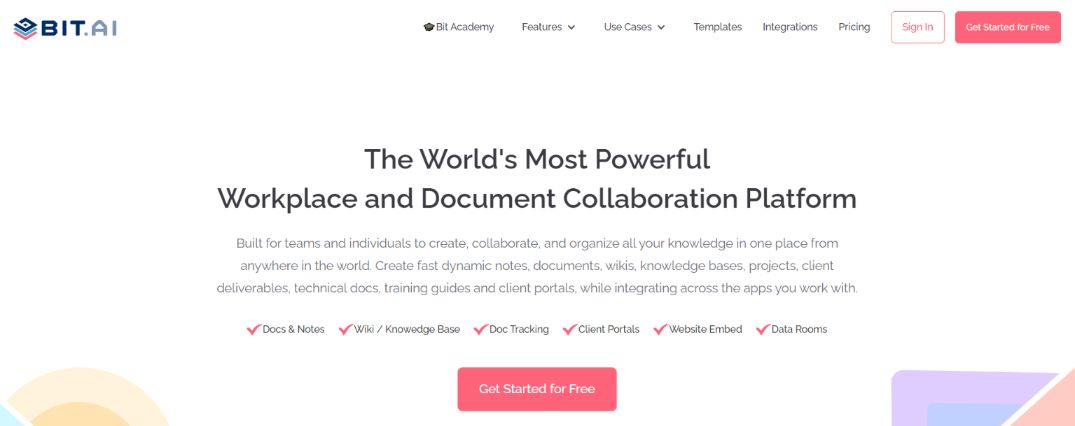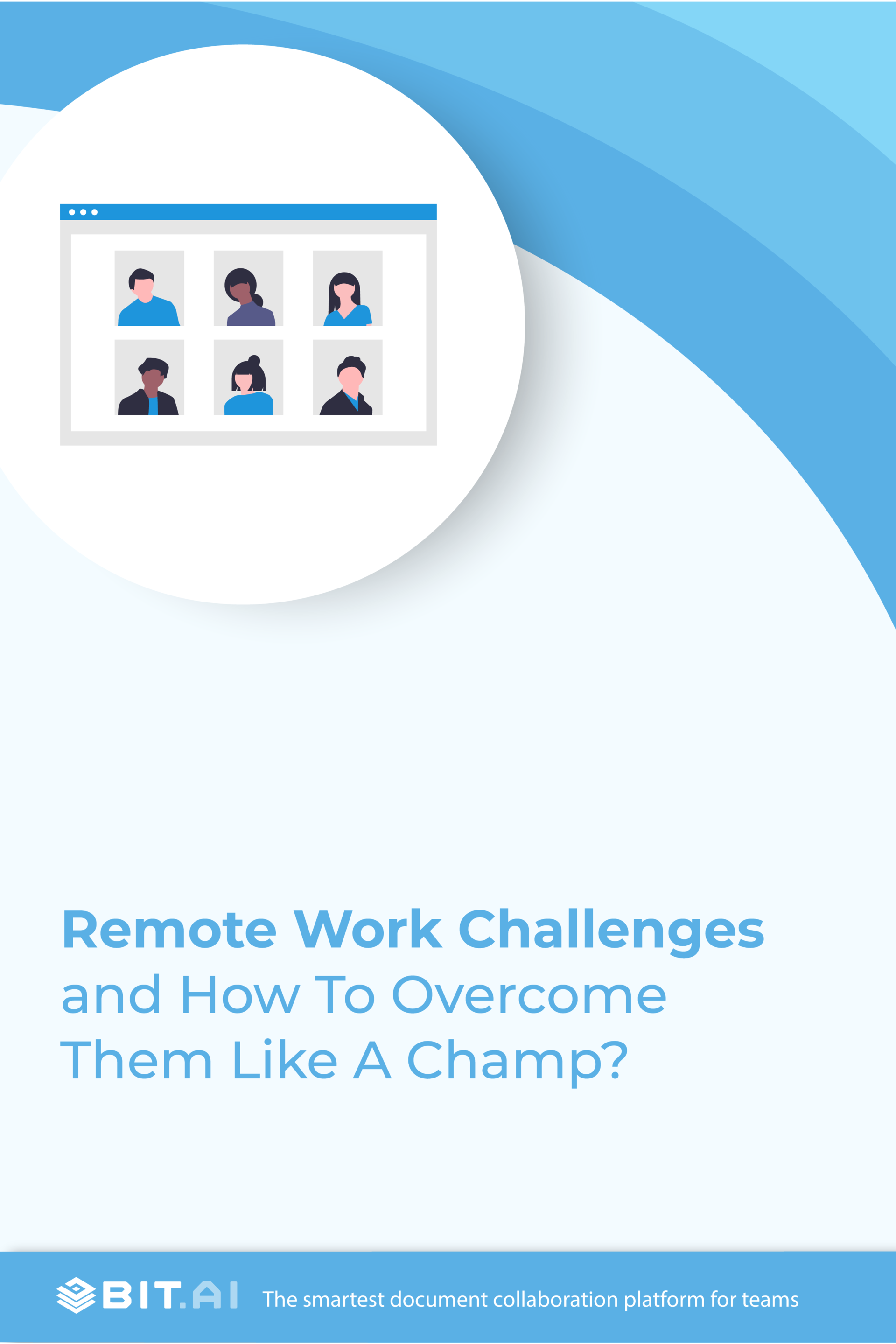Picture this: you roll out of bed, still wearing your pajamas, and start your workday without even stepping foot outside your front door. This is the beauty of remote work!
With more and more companies embracing the idea of working from home, it’s never been easier to enjoy the perks of a steady paycheck while avoiding the horrors of a morning commute. With an internet connection, employees can now work from the comfort of their homes, coffee shops, or anywhere else (hello workations!).
But hold on! While working remotely presents benefits such as increased flexibility and autonomy, it also comes with its own set of challenges that both employees and employers must navigate. From endless distractions to feeling isolated, remote work isn’t always rainbows and sunshine.
But don’t worry; we’ve got you covered! In this blog, we’ll explore the common remote work challenges and how to overcome them like a champ so you can maintain the perfect work-life balance! So what are you waiting for? Let’s get started!
What are the Common Remote Work Challenges Employees Face?
As mentioned, remote work is not all rainbows and sunshine; it poses several problems and challenges. Let’s take a look at what they are:
1. Communication Gap is Real!
Ever had to message and email multiple people back and forth and struggle to keep track of who said what? There you have it – the most common remote work challenge!
Communication and collaboration are essential for any successful project, but remote work can make these tasks more challenging. This can be due to different time zones, lack of face-to-face interaction, and technical difficulties. For example, if a team member is based in a different time zone, it can be challenging to coordinate meetings and collaboration. This can lead to delays in projects and affect productivity.
2. Did Someone Say Distractions?
Who knew there were so many distractions at home, right? From your furry friends to the construction work happening across the street or the simple household chores, there’s always something to distract us. This can make it quite difficult for employees to work and affect their focus, productivity, and efficiency.
3. Feeling Lonely and Isolated
Being a remote worker can sometimes feel like being stranded on a deserted island. That’s right, the isolation and loneliness are real! This can be especially challenging for employees used to working in a social environment. It can affect employee morale and well-being, decreasing productivity and increasing turnover.
4. Trouble with Technology
 Remote work requires reliable technology and equipment such as laptops, internet connectivity, and software tools. Without proper access to these resources, employees may be unable to perform their duties effectively. For example, an employee’s internet connection is slow, or their system doesn’t support certain software; this can lead to delays in communication and collaboration with team members, slow down the process, and affect the quality of work.
Remote work requires reliable technology and equipment such as laptops, internet connectivity, and software tools. Without proper access to these resources, employees may be unable to perform their duties effectively. For example, an employee’s internet connection is slow, or their system doesn’t support certain software; this can lead to delays in communication and collaboration with team members, slow down the process, and affect the quality of work.
5. Goodbye Work-Life Balance?
Oftentimes, remote work can blur the lines between work and personal life. From working overtime to working during weekends, employees struggle to maintain a healthy work-life balance. This adversely affects both their personal and work life, resulting in low-quality work and health issues among the employees.
6. Lack of Supervision
As a remote worker, you’re the captain of your own ship. With no one looking over your shoulder when you are working remotely, procrastinating can be tempting. This often leads to employees losing track of time and later struggling to manage their deadlines. The lack of supervision also makes it difficult for newer employees to learn.
Okay, we’ve now established that several remote work challenges are looming over us, so how do we overcome them like a champ? Let’s find out in the next section!
How To Overcome Remote Work Challenges Like A Champ?!
1. Set Up a Dedicated Workspace

First things first, set up a dedicated workspace for yourself. No, this does not mean you lie on your bed or lounge on the couch while working. It can be a separate room or just a specific area in your home where you can focus on work. Ensure you have a comfortable chair, a desk or table, good lighting, and strong internet connectivity.
A designated workspace that is comfortable and free from distractions can help you mentally prepare yourself and put you in the zone for work. It will also signal to others in your household that you are working.
2. Stick to a Routine
One of the many benefits of remote work is the flexibility it offers. It can be liberating; however, it can easily slip into unproductive habits without structure. So it’s important to maintain a consistent routine to avoid procrastination and maintain productivity.
Set regular working hours and take breaks at the same time each day. This will help establish a work-life balance and ensure enough time for other activities.
3. Communicate. Communicate. Communicate.
One of the most significant remote work challenges is communication. And in case the title didn’t make it clear enough, communication is key!
According to a report, 71% of those employees who said they were more productive feel well-connected to their colleagues. So, employees who regularly communicate with each other are more productive. Without the benefit of face-to-face interaction, it’s crucial to establish clear and frequent lines of communication.
Ensure you have clear expectations with your colleagues and communicate regularly to ensure everyone is on the same page. Contact your colleagues and managers using video conferencing tools, chat apps, and email. Be proactive in communicating any challenges or issues you are facing so that you can work together to find a solution.
Read More: Communicate Effectively & How to do it in Workplace! (Types & Techniques)
4. Take a Break!
Taking a break is not just a Kit Kat slogan; we need to take it more seriously. Taking regular breaks throughout the workday is essential for productivity and mental health. This includes stepping away from the computer, taking a walk, or engaging in other activities that help to clear your mind.
You can set several mini breaks between all your tasks, reward yourself with a break after completing a deadline, or take a break when you feel like it. By taking these much-needed short breaks throughout the day, you can recharge your mental batteries and return to work refreshed and energized.
5. Embrace Technology
Do not underestimate the power of remote tools!
Working remotely requires various tools and software to stay connected and productive. From project management software to video conferencing tools, countless options are available. Taking the time to explore and master these tools can help improve communication, collaboration, and productivity.

One such software you can use is Bit.ai. It is a document collaboration platform designed for the modern-day workplace. It helps create, collaborate, share, track, and manage information in one place.
Bit offers a central hub for employees to collaborate on multiple smart documents in real-time simultaneously. It allows you to create smart workspaces around projects, departments, teams, and clients to organize your documents and data.
You can co-edit, make inline comments, chat via document chat, and use @mentions to bring all your employees to the same place, making collaboration seamless and efficient. This feature ensures everyone is on the same page and working towards the same goals. What’s more? Bit.ai has a sleek editor, a robust content library, stunning templates, real-time notifications, and much more!
All-in-all, Bit.ai is like a virtual office! Simply create a workspace, add your team members, and start working from the comfort of your own home!
6. Get Moving!
Sitting for extended periods can have negative effects on physical and mental health. And especially since working from home means that you barely move around in general, it becomes extremely important to get up and get moving. Indulge in physical activity, whether taking a walk, doing an online workout, or simply doing stretching exercises. This can help improve mood, energy levels, and overall health.
7. Consider a Change of Scene
Sure, we said that you need to have a designated workspace. But sometimes, you need a change of scene or environment, especially when working from home alone. It might just do the trick for the isolation and loneliness you feel.
Consider working at co-working spaces or coffee shops, as it can provide a sense of belonging to a community. This way, you may develop friendships with others who work at or frequent these locations. You can view these places as a second workspace.
8. Draw Boundaries
When it comes to remote working, it becomes difficult to balance work and personal life as it often gets blurred. This leads to employees working overtime and even during weekends or holidays. And you know what they say – all work and no play makes Jack a dull boy.
So establishing and drawing clear boundaries is crucial in overcoming your remote work challenges. Let your colleagues and supervisors know that you will not be responding to emails after your work time. Ensure you specify that your weekends are off-limits unless it’s urgent. Doing this can significantly reduce stress, improve well-being, and maintain a perfect work-life balance.
9. Self-Care is the Best Care

Whether you are working remotely or not, you must prioritize self-care. This includes taking time to disconnect from work like going on vacations or trips, engaging in activities that bring you joy, or chillax on your couch binging some Netflix. Whatever floats your boat!
Also, socialize and connect with friends and family outside of work hours. Take day-offs and mental health days when you’re feeling down in the dumps, and never hesitate to seek support and help when needed.
Don’t Forget to Find the Balance and Work on Your Mental Health
Mental health is a fundamental aspect of an individual’s overall well-being. After all, your brain is part of your body and needs rest just as much as the rest of your body.
Often, remote workers face several challenges that can impact their mental health, including isolation, burnout, lack of boundaries between work and personal life, difficulty disconnecting, and lack of support. That’s why addressing these challenges and prioritizing mental health in remote work is essential to ensure a fulfilling and sustainable work experience for everyone.
Take steps to maintain social connections, set boundaries around work hours and personal time, prioritize self-care activities and relaxation, and most importantly, seek mental health support when needed. Knowing signs of burnout or other mental health concerns can help you manage them better.
At the end of the day, your health is the biggest wealth you own, and nothing should come in the way of it. So, find the right balance between taking the rest you need and working to achieve your goals.
Wrap Up
In conclusion, remote work can be both a blessing and a curse. It provides flexibility and the freedom to work from anywhere but also comes with challenges. Don’t worry, though, because you can overcome any hurdle that remote work throws with a positive attitude and the right strategies!
Whether scheduling virtual coffee breaks with colleagues, setting boundaries to maintain a work-life balance, or simply practicing self-care, there are countless ways to thrive in a remote work environment. Just remember to find the balance between resting and working!
We hope this blog has provided valuable insights and tips for making the most of your remote work experience. Now go forth and conquer the remote work world with all tips and knowledge you’ve gained! Good luck and adios, amigos!
Further Reads:
Farewell Messages For Co-Workers: Make The Last Goodbye Memorable!
Remote Employee Onboarding Checklist and Best Practises!
21 Remote Work Tools & Apps For Productive Employees!
Workload Management: Definition, Importance, Process & Tools!
9 Ways to Improve Work Performance in 2023
Top 10 Benefits of Teamwork You Must Know!
How to Build a Peer-to-Peer Recognition Program?

Related posts
About Bit.ai
Bit.ai is the essential next-gen workplace and document collaboration platform. that helps teams share knowledge by connecting any type of digital content. With this intuitive, cloud-based solution, anyone can work visually and collaborate in real-time while creating internal notes, team projects, knowledge bases, client-facing content, and more.
The smartest online Google Docs and Word alternative, Bit.ai is used in over 100 countries by professionals everywhere, from IT teams creating internal documentation and knowledge bases, to sales and marketing teams sharing client materials and client portals.
👉👉Click Here to Check out Bit.ai.


